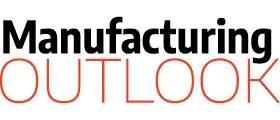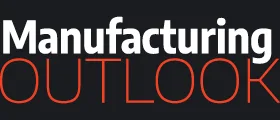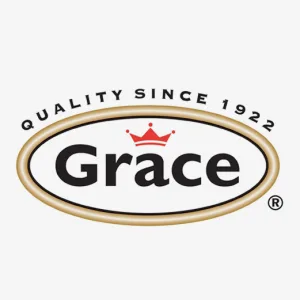Jamaica’s manufacturing and exporting landscapes exhibit significant potential and, supported by recent positive trends, are poised to take center stage as a major driver of domestic growth.
SPOTLIGHT ON JAMAICAN MANUFACTURERS AND EXPORTERS
Jamaica’s manufacturing industry is undergoing significant transformation, driven by emerging trends that are reshaping the sector.
Companies are actively embracing cutting-edge technologies to enhance productivity and streamline operations, from automation in production lines to the integration of digital tools for supply chain management.
This aligns with the push toward Industry 4.0, where technological innovation such as robotics, artificial intelligence (AI), and digital fabrication are becoming integral to competitiveness.
Another key trend is the shift towards export-driven growth, as manufacturers recognize the limitations of relying solely on the Jamaican market and are actively exploring opportunities in regional and global markets.
This diversification strategy is fostering economic growth and positioning Jamaican products to compete on a broader scale.
To support these efforts, the Jamaican government has introduced Product Input Relief (PIR), an initiative offering exemptions or reductions on duties and taxes for production inputs.

This policy enables manufacturers to reduce costs, improve resource utilization, and maintain global competitiveness while aligning with international trade standards.
Additionally, a significant enabler of this transformation is the development of an industry skills upgrade strategy.
This strategy focuses on upskilling and reskilling workers, mitigating workforce displacement, and fostering digital inclusion. It also emphasizes collaborative efforts between the Jamaican government, educational institutions, and industry stakeholders to ensure a future-ready workforce.
These measures are closely tied to Jamaica’s national goals, which include increasing the manufacturing sector’s gross domestic product (GDP) contribution to JMD$81 billion by 2025, generating employment, and enhancing exports. Achieving these ambitious targets requires ongoing innovation, infrastructure expansion, and a skilled workforce.
By leveraging these trends– technological innovation, export market exploration, government support, and strategic workforce development – the Jamaican manufacturing industry is positioning itself for sustained growth and resilience in an increasingly competitive global environment.

Q&A WITH THE JAMAICA MANUFACTURERS AND EXPORTERS ASSOCIATION
The Jamaica Manufacturers and Exporters Association (JMEA) is the country’s leading industry association, serving as the voice of exporters, manufacturers, service providers, and micro, small, and medium-sized enterprises (MSMEs). We speak with Executive Director, Kamesha Blake, to find out about the association’s exciting developments and what the future holds for this burgeoning industry
Firstly, could you talk to us through the beginnings of JMEA?
Kamesha Blake, Executive Director (KB): JMEA is the product of a significant merger between the Jamaica Manufacturers Association (JMA) and the Jamaica Exporters Association (JEA) in 2018.
Together, JMA and JEA brought 77 years of collective experience and legacy to the table, enabling JMEA to represent a wider range of sectors including manufacturing, mining, services, and primary products.
This merger positioned JMEA to champion Jamaica’s presence in both local and global markets more effectively, fostering innovation, collaboration, and sustainable economic growth.

Please give us your current take on the manufacturing and exporting landscapes across Jamaica – what are some of the major challenges and developments?
KB: Over the past five years, the manufacturing sector has contributed approximately JMD$60-65 billion to Jamaica’s GDP, with a 35.4 percent increase in exports recorded in 2022.
Key growth areas include food, beverages, and tobacco, reflecting resilience and a strong foundation for expansion.
The sector’s shift from Industries 2.0 and 3.0 toward Industry 4.0 is crucial to boosting competitiveness in the global market. However, the transition is hindered by several challenges, including workforce shortages and a significant skills gap.
Between 2018 and 2022, employment in manufacturing declined by approximately 6,000 workers, exacerbating labor shortages. A misalignment between education and industry needs further compounds this issue, underscoring the importance of workforce development and educational reform.
Despite potential gains, the sector’s reliance on labor-intensive production methods highlights the need for widespread adoption of digital technologies, including automation and AI, to enhance productivity and global competitiveness.
Additionally, while export growth is a positive indicator, the industry faces the challenge of sustaining this momentum by penetrating new markets and diversifying its export base.
Efforts to address these challenges are underway, including the development of a national five-year strategy, aiming to increase the sector’s GDP contribution to JMD$81 billion by 2025 and exports to USD$531 million.
Moving forward, key priorities include enhancing workforce productivity, improving cost efficiency, fostering innovation, and expanding market access.
In the broader Caribbean context, many nations face similar hurdles when transitioning to advanced manufacturing and integrating global best practices, making collaboration and regional policy alignment critical for success.

“Jamaica’s rich heritage – embodied in its music, cuisine, athletic prowess, and iconic cultural symbols – resonates powerfully on the international stage”
Kamesha Blake, Executive Director, Jamaica Manufacturers and Exporters Association
What is the key to successfully promoting Jamaican brands?
KB: The key to successfully promoting Jamaican brands lies in leveraging the island’s dynamic and globally dominant culture.
Jamaica’s rich heritage – embodied in its music, cuisine, athletic prowess, and iconic cultural symbols – resonates powerfully on the international stage. This cultural identity offers a compelling narrative that captivates audiences and fosters emotional connections with consumers.
Global markets increasingly value authenticity and storytelling, seeking brands that evoke a sense of place and purpose.
Jamaican brands, steeped in a legacy of resilience, creativity, and excellence, have a natural advantage in this regard as they can tap into the strong global recognition of “Brand Jamaica”, which evokes images of vibrancy, passion, and authenticity.

What key investments or recent projects has JMEA been working on?
KB: We have been prioritizing skills development to address the critical labor shortage in the manufacturing sector.
One key initiative is our partnership with the Inter-American Development Bank (IDB) and the HEART/NSTA Trust to establish the Manufacturing Sector Skills Council (MSSC).
MSSC aims to create diverse and adaptable training programs aligned with the evolving demands of a modern manufacturing industry. This initiative is a pivotal step in building a workforce capable of driving innovation, efficiency, and excellence in the sector.
Additionally, we have partnered with the University of Technology, Jamaica through a memorandum of understanding (MoU) to bridge the gap between education and the job market.
This collaboration equips students with essential technical skills while strengthening the talent pipeline for Jamaica’s manufacturing industry.
Additionally, under this partnership, third- and fourth-year undergraduate students gain hands-on industry experience, contributing directly to member companies in areas such as manufacturing, technology, project management, and occupational health and safety.
These initiatives are critical to ensuring a skilled and future-ready workforce for Jamaica’s manufacturing sector.

What about Expo Jamaica and the exciting opportunities this tradeshow presents?
KB: Expo Jamaica is a cornerstone event that connects Jamaica’s vibrant business community with the global market.
The tradeshow is a unique platform for international and local buyers to directly engage with Jamaican products and services and explore opportunities for trade partnerships.
Expo Jamaica is the largest and most influential exhibition and trade show in the English-speaking Caribbean, exclusively dedicated to showcasing Jamaican-made products and services.
Since its inception in 1971, this biennial event has become a beacon for trade and investment, attracting not only local businesses but also members of the diaspora and international buyers.
It provides a powerful avenue for building brands, maximizing product awareness, and unlocking significant trade opportunities. The event also plays a crucial role in advancing local industry development, expanding markets, and fostering strong trade relationships with traditional and non-traditional global partners.

From 3rd-6th April 2025, with the theme “Global Partnership, Local Impact, Advancing Jamaica’s Reach”, Expo Jamaica will once again serve as the central hub for Jamaican commerce.
The event will spotlight the strengths of Jamaica’s productive sectors, providing international buyers first-hand experience of the innovation, quality, and craftsmanship that define Jamaican products.
This multi-sector exposition will feature a diverse range of participants, including manufacturers, service providers, primary producers, exporters, and representatives from the tourism industry.
Exhibitors will range from pioneering start-ups to established industry leaders, offering attendees a comprehensive look at the best of Jamaica’s business landscape.
For international buyers, Expo Jamaica represents an unparalleled opportunity to source products, forge meaningful partnerships, and participate in the growth of Jamaica’s economy.
“JMEA’s mandate is to support its members through advocacy and strategic partnerships. Over the next five years, we envision strengthening these partnerships to drive innovation and growth across the manufacturing and export sectors”
Kamesha Blake, Executive Director, Jamaica Manufacturers and Exporters Association

How do you see JMEA developing over the next five years, and what specific targets do you hope to achieve moving forward?
KB: JMEA’s mandate is to support its members through advocacy and strategic partnerships. Over the next five years, we envision strengthening these partnerships to drive innovation and growth across the manufacturing and export sectors.
We will likewise intensify our lobbying efforts with the Jamaican government to enhance incentives and policies that foster economic development and empower our members to thrive in an evolving global market.
We are also aiming to keep increasing membership numbers and expanding our network to include a broader range of manufacturers and exporters, fostering greater collaboration and representation.
Elsewhere, we are advocating for better incentives by working closely with policymakers to secure more robust incentives that drive competitiveness and economic growth.
JAMAICA MANUFACTURERS AND EXPORTERS ASSOCIATION PARTNERS







































